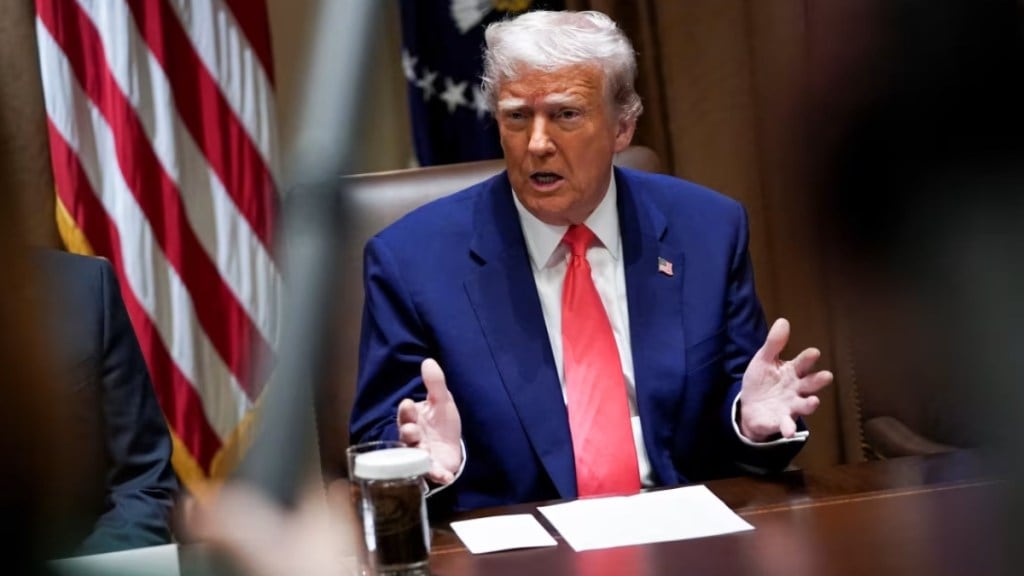US President Donald Trump on Thursday said that his administration may cut income tax sharply for the Americans, and possibly “cutting it altogether”, in the next few years, suggesting that the revenue coming from tariffs would make up for the loss.
Tariff revenue ‘is going to be large’
Speaking to the US military service members on a video call, Trump suggested this major change in tax policy saying that the government could afford deep income-tax cuts. “Over the next couple of years, I think we’ll substantially be cutting and maybe cutting out completely, but we’ll be cutting income tax. Could be almost completely cutting it because the money we’re taking in is going to be so large,” he said.
This is not the first time that Trump has linked tariffs to lower income tax. Earlier this year, he had said that once tariffs take effect, many Americans, especially those earning below $200,000 a year, could see their income tax drop significantly or even disappear.
After returning to the White House, Trump imposed new tariffs on many trading partners. These taxes range from 10% to 50% on most imports, depending on where the goods come from. He has argued that the tariffs will boost government revenue and push consumers to buy more American-made products.
Trump’s promise of a $2,000 tariff dividend
Trump, who often defends US’ high tariffs, also recently proposed giving Americans a “tariff dividend”. Earlier this month, he said that the critics of his tariffs were wrong and promised that each person, except high-income earners, would receive at least $2,000.
He also said that the US is collecting huge sums from tariffs, which he believes will help lower the national debt and attract more investment, leading to new factories and plants across the country.
Trump had claimed the government is taking in trillions and will soon start paying down its $37 trillion debt, with Americans getting a dividend of at least $2,000 each.
This proposal came shortly after Supreme Court arguments earlier this month, where several justices questioned the legality of the tariffs, raising the possibility that many could be struck down and that refunds of more than $100 billion might be required, according to Bloomberg.

